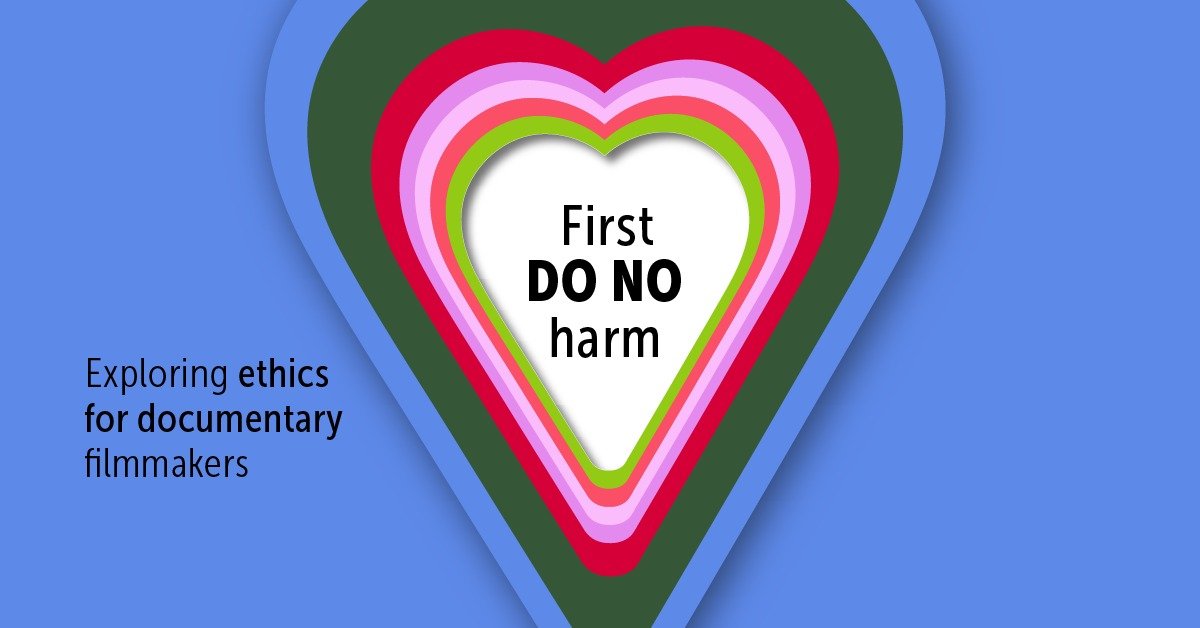Exploring the boundaries of documentary filmmaking with Riccardo Servini & Ben Proudfoot
Documentary filmmaking has always been considered as a window into reality, presenting facts and shedding light on important subjects.
Written & Interviewed by Mark Brennan
However, the concepts of objectivity and truth in documentaries are complex and multifaceted - especially in what we often hear is now a post-truth world.
‘Objectivity’ refers to the endeavour to present a subject matter without personal bias, allowing viewers to form their own opinions based on the information presented. However, complete objectivity is a challenging goal to achieve. Filmmakers, like any human beings, have their own perspectives and values that inherently influence their work. As a result, documentaries are inevitably imbued with a certain degree of subjectivity, particularly if the filmmaker is close to the subject being explored.
At the recent edition of Indy Shorts we caught up with Ben Proudfoot, director of Oscar-winning short documentary The Queen of Basketball, who says:, “I am mostly interested in the subjective truth of the storyteller in my films. This is why most of my films focus on a single person and their story from their perspective rather than various experts talking about a story. So my goal is, without platforming something that isn’t factual, to help a storyteller tell their version of events the best I can. I think that’s all we can really do. I think many filmmakers run into trouble attempting to achieve objective truth, which in my opinion is impossible to achieve. So I try to align with who I’ve asked to be on camera and bring all the magic of cinema to their aid.”
In addition to presenting their subjects faithfully, documentary filmmakers also have a responsibility to craft a compelling narrative. This duality highlights the tension between objectivity and storytelling. Filmmakers often face difficult decisions in terms of selecting what to include, omit, or emphasise to create a coherent and engaging documentary. These creative choices can impact the objectivity of the film. However, this does not mean that documentaries are inherently deceptive. By acknowledging their subjectivity and being transparent about their creative decisions, filmmakers can foster a sense of trust with the audience.
Proudfoot adds, “It just comes down to your purpose as a filmmaker. Is your priority to entertain the audience over creating something that captures something true? This can be dangerous. Luckily I was trained hardcore in working with The New York Times for so many years that our films must pass their level of rigorous fact-checking standards. So you can’t insinuate or twist something if you haven’t double sourced to be factually accurate. But especially with short documentaries when you are engaged in the art of subtraction, you often have to elapse time, remove side adventures or C- and D-plots in order to achieve a certain elegance and keep the audience focused on the main thread.
Additionally, we may rearrange the story to place open questions at the top (that will be answered by the end) to maintain the relationship between the audience and the movie taut. But all that cannot change the intent or spirit of the storyteller; we can only make enhancing lateral moves that make the story seem more compelling by reducing or rearranging it. A good rule of thumb is imagining the moment when you show the film to the storyteller. What will they say? If you’re worried about them claiming you’ve misrepresented them, you probably have an issue.
One example of this is in The Queen of Basketball. Lucy opens the film by speaking about herself in the third person and then revealing it’s her. It’s a catchy hook of an opening that was filmed later in the interview (near the end) on a whim of us two playing around and me asking “Who is Lucy?”. Also, documentary filmmakers often use connector words like “and,” “but,” and “so,” to connect ideas in the movie. So I actually get them to say those words for me (at various volumes) at the end of the interview so we have that material to stitch together the narrative.”
Riccardo Sevrini, co-director of the feature documentary A Space In Time which explores one family’s struggle with the fatal muscle wasting disease Duchenne muscular dystrophy.
“I normally edit my own films and I care about the aesthetic, so I edit in my head as I’m shooting and will be planning future shots as I listen to people talk. I personally think documentary has got to a point where visually it can be a lot closer to fiction but it is a very fine line in making sure audiences don’t think it’s too orchestrated. I’m still finding that balance myself. Music will play such a big part in changing the audiences feelings towards a character and it can be called manipulative at times but we are still trying to create entertaining and engaging stories, so I think we are well within our right to use these tools to achieve our goals as long as you’re complimenting the truth and not just making things up. Of course, there are films and filmmakers that do manipulate their subjects in negative ways but I don’t make films that set out to demonise people. I hope that my empathy and sensitivity with who I’m filming shows and the aim is for my style of filmmaking to compliment that."
The audience's role in interpreting and understanding documentaries cannot be overlooked. Like the filmmakers, viewers bring their own perspectives, knowledge, and biases to the viewing experience, shaping their understanding of the subject matter. While documentary filmmakers may strive for objectivity and truth, the ultimate interpretation lies with the audience.
Any advice from Ben or Riccardo for other filmmakers setting out to make their own documentaries?
Ben: “Don’t give up. We have an oversaturated industry with more people than we have jobs and money. So that tells you that rejection (which you will face) is much more to do with the natural stance that any oversaturated industry must take and probably very little to do with your talents and filmmaking ability. Keep making. Find people who encourage you to make more. Find what motivates you and build your life around that.”
Riccardo: “I think the biggest thing I’ve learnt with documentary filmmaking is that you can’t be precious. Quite often you are walking into situations you can’t control and you will always have ideas about what you want but can’t always get them. As a director, if you can practise calmness and flexibility, that will then trickle down to the team and your subjects which will help you find magic you never even imagined."




